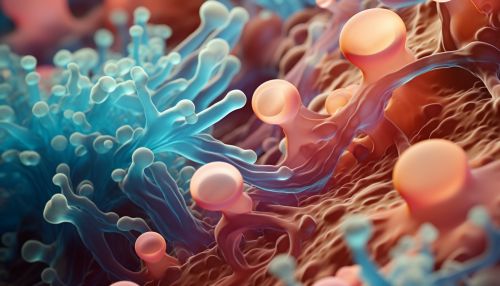Bacteriology
Introduction
Bacteriology is the branch of microbiology that focuses on the study of bacteria. This discipline involves the identification, classification, and characterization of bacterial species. Because of the similarity of thinking and working with microorganisms other than bacteria, there has been a tendency for the field of bacteriology to extend as microbiology. The terms were formerly often used interchangeably. However, bacteriology can be classified as a distinct science.
History
The discovery of bacteria preceded the establishment of Bacteriology as a science. Antonie van Leeuwenhoek is considered to be the father of microbiology. He was the first in 1673 to discover, observe, describe, study and conduct scientific experiments with microorganisms, using simple single-lensed microscopes of his own design. Robert Koch is known for developing four basic criteria (known as Koch's postulates) for demonstrating, in a scientifically sound manner, that a disease is caused by a particular organism.
Bacterial Structure
Bacteria, as a member of prokaryotes, are characterized by their lack of membrane-bound organelles. They are typically a few micrometers in length and have various shapes ranging from spheres to rods and spirals.


Bacterial Classification
Bacteria can be classified on the basis of cell structure, cellular metabolism or on differences in cell components. The classification of bacteria is ongoing and evolving with advancements in technology and understanding of bacterial physiology.
Bacterial Metabolism
Bacteria exhibit an extremely wide variety of metabolic types. The distribution of metabolic traits within a group of bacteria has traditionally been used to define their taxonomy, but these traits often do not correspond with modern genetic classifications.
Bacterial Genetics
Bacteria, as asexual organisms, inherit an identical copy of the parent's genomes and are clonal. However, all bacteria can undergo horizontal gene transfer, one of several processes of genetic transfer between organisms.
Bacterial Diseases
Bacteria are the most common cause of infectious diseases. Some bacteria are beneficial but others are harmful and cause infections. Some examples of bacterial diseases include tuberculosis, pertussis, syphilis, and leprosy.
Bacterial Role in Ecosystem
Bacteria play a critical role in the global ecosystem. The vital roles that bacteria play in the biosphere include fixing nitrogen from the atmosphere, breaking down organic materials, and recycling nutrients.
